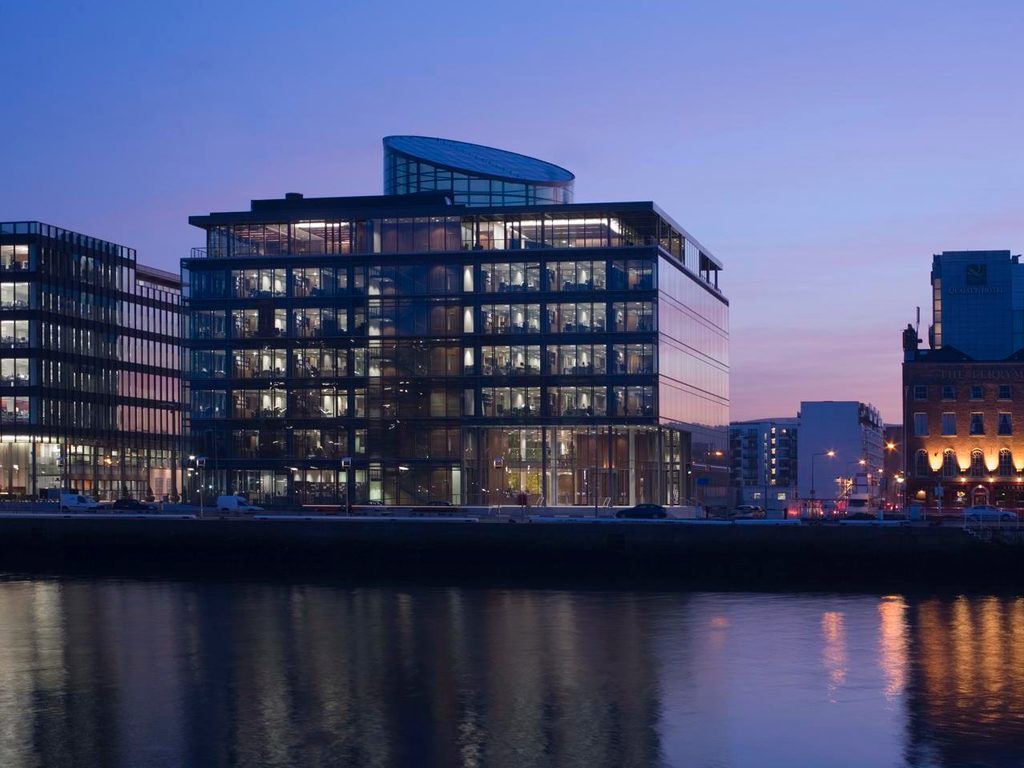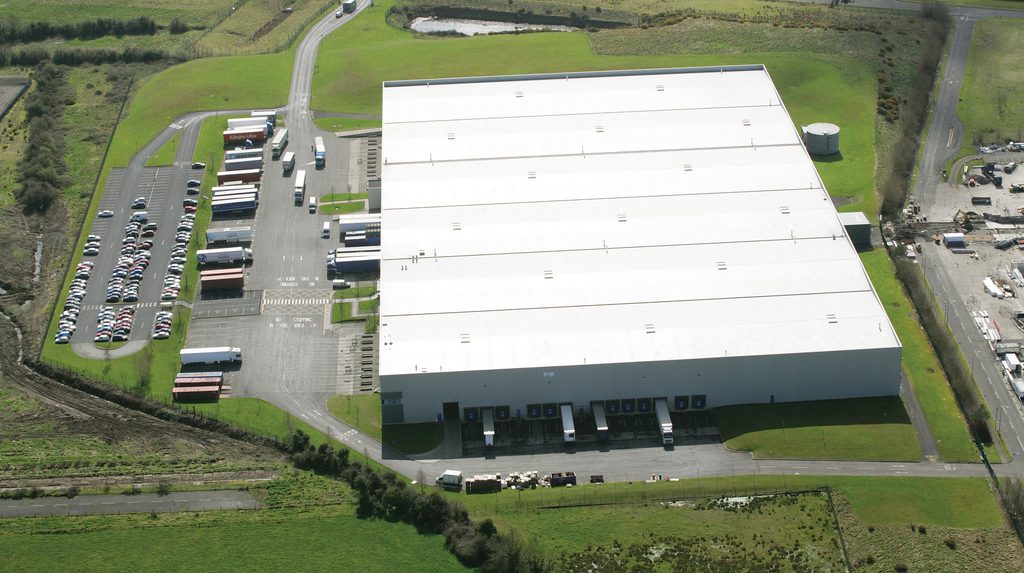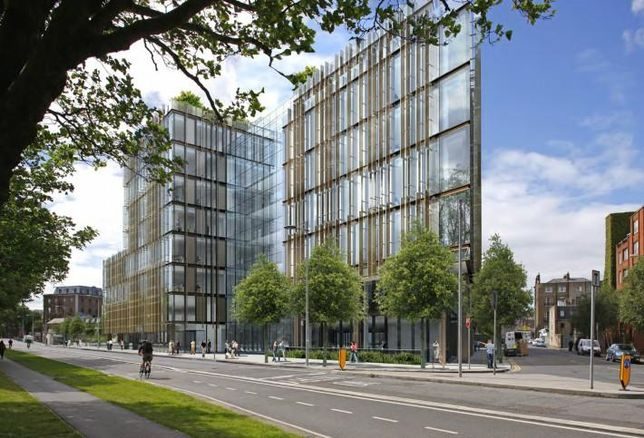US fund manager and investor Peter Lynch sagely noted ‘know what you own and know why you own it.’ It is increasingly apparent IPUT, Ireland’s biggest private commercial property company, is in the know.
IPUT’s twin focuses – prime city centre offices and building an exposure to Ireland’s growing logistics sector – have come to the fore this week following a €43.5m deal to buy partner Aviva out of two such assets.
On the surface IPUT’s strategy sounds perfectly simple. A focus on best in class office buildings and the shed space certainly isn’t a revolution in real estate, with investors and fund managers the world over dialled in on those sectors – however, saying that is what you are going to do and then doing it are two very different things.
How do you compete against the property investment arm of Singapore’s state investment fund?
Over recent years Dublin, surfing a wave as the European city of choice for US tech firms, has become a truly globalised investment market. Singapore’s Mapletree, Korea’s Hana as well as the German powerhouses of Deka and Union have trained their considerable firepower on Dublin’s office market.
As a result, yields have tumbled for prime office assets. Henderson Park bringing One Molesworth Street to market off an initial yield of 3.5% and French investor Amundi striking a deal at close to 4% for Fitzwilliam 28 are signs of the new normal.
While the yield compression is positive for IPUT’s existing portfolio, competing against investors with such a low cost of capital for the latest sales presents a more obvious problem. How do you continue to build an office portfolio in Dublin’s city centre competing against the property investment arm of Singapore’s state investment fund?

Longer-term horizons and reputational firepower
IPUT has instead innovated to unearth value and opportunities that have passed others buy. The business has a 50-year old track record which has provided it with the reputational firepower, operational nous and confidence to take on a series of more ‘creative’ deals.
‘Nope, haven’t heard they are doing that’ or ‘news to me’ pretty much sum up the mood music coming from the Dublin market when asked if IPUT was buying out Aviva’s 30% holding in Riverside One.
But IPUT were, of course. In its essence, it is an ‘IPUT deal’: off-market, very quiet, opportunistic and completely in tune with its current investment strategy of doubling down on city centre office assets in Dublin.
It already looks like shrewd business for IPUT. The investor paid close to 4.3% for its 70% stake five years ago, picked up the remaining slice of the 110,000 sq ft building for a touch above 4% NIY, and now controls one of Dublin’s best offices which is ‘a sub 4% asset all day long’, according to one leading agent in the city.
Full control of Riverside One makes repositioning and future redevelopment opportunities an easier task, too.
Rather than immediate gratification, the investment rationale focuses on leveraging its reputational position to do deals in the background and then adding value via experience gleaned from operating in Dublin for half a century.
Another ‘IPUT deal’
Last year’s deal to acquire No3 Dublin Landing is another case in point. The market was aware OPW’s long running deal to pre-let the 110,000 sq ft office from Ballymore and Oxley had collapsed, however rather than wait for a major pre-let, IPUT moved to buy the building with vacant possession off-market. Like last week’s Aviva deal it was done before most knew it was happening.
IPUT paid around €1,000 per sq ft for the vacant speculative office development, in what amounted to a reasonably marginal discount to its value as a let income producing asset. However, the move meant IPUT picked up the asset with-out competing against the German funds; an opportunity not to be missed.
Microsoft is now under offer to lease 47,000 sq ft of office space in No3 Dublin Landings, with other deals in the ether.

New RCF providing firepower
A strong balance sheet provides confidence to investors, prospective tenants and vendors. At the end of December, the company held €74m in cash equating to around 2.7% of its portfolio’s net asset value.
It bolstered liquidity in the first quarter with a new revolving credit facility (RCF) and a private placing in the US adding €500m of working capital. Wells Fargo provided a €300m RCF, while IPUT raised a further €200m from an oversubscribed bond offering in the US.
At the end of December, IPUT had drawn close to €150m of its previous £250m RCF agreed with Wells Fargo. It’s 2019 results noted it had capital commitments of €110m related to development and refurbishment projects.
That firepower means it well-placed to deliver on deals and developments, rather than source funding on a case-by-case basis. For big US corporates, such as LinkedIn, who IPUT is developing 430,000 sq ft of offices for at Wilton Park, it is also a differentiator.

The move from retail to logistics
IPUT’s portfolio is not immune from the woes of the retail sector, however. That exposure includes 17 assets and over 900,000 sq ft of space, equating to around 18% of its total portfolio. The assets were booked at €526m in its Q1 results, representing a fall in value of €13m from its 2019 results at the end of December.
While an 18% position is not insignificant, IPUT has seemed to grasp the structural changes blowing through the sector quicker than most in Ireland. The disposal of a minority stake in The Pavillions shopping Centre for €71m last year looks like a well-timed exit, as shopping centre rents continue to rebase.
Concurrently, IPUT has been building its logistics platform as it pivots from retail. Its portfolio extends to over 2.4m sq ft, comprising 30 properties which are situated across Dublin. A 325,000 sq ft letting to Dunnes, the biggest logistics letting in a decade, a recent barometer of its progress.
And what about its investors?
The fund collected €30.7m of rental income and distributed €27.2m (€11 per share) to investors in the first quarter of this year. This reflects a 12-month dividend yield of 4.1% (based on average NAV) to 31 March 2020. Another IPUT deal for the fund’s institutional backers.




